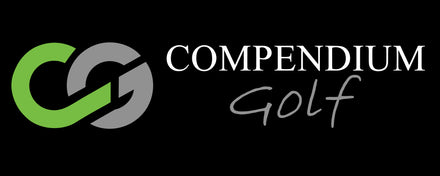Golf is a game of finesse, strategy, and skill where every stroke counts, and lowering your handicap becomes a measure of success and improvement. While coaching and practice are fundamental, the role of equipment cannot be overstated. The correct gear can indeed make a significant difference in your game, but contrary to popular belief, upgrading your bag doesn't have to break the bank. We are going to explore how smart equipment choices, including the savvy option of buying second-hand clubs, can help reduce your handicap without spending a fortune.
The Right Tools for the Job
Just like any other sport, having the right equipment in golf can significantly influence your performance. Clubs that complement your swing can improve shot accuracy, distance, and consistency. However, it's crucial to understand that more expensive doesn't always mean better for you. The "correct" equipment is a set of clubs that suits your unique swing mechanics and physical attributes, not necessarily the latest model on the market.
Custom Fitting: Tailoring to Your Swing
One of the most effective ways to ensure your equipment is helping, not hindering your game, is to get a custom club fitting. A professional fitting can determine the optimal clubhead design, shaft flex, length, and grip size for your swing. Custom-fitted clubs can address specific areas of your game where you're losing strokes, be it off the tee, on the fairway, or around the greens.
The Case for Second-Hand Clubs
The allure of brand-new, shiny clubs is undeniable, but is it necessary? The truth is, good condition used or second-hand clubs can perform just as well as new ones, especially if they're a good fit for your swing. Golf clubs don't lose their effectiveness over time like a pair of running shoes might. This means that a high-quality second-hand club can still be a formidable tool in your golf bag.
When buying second-hand, there are a few key things to keep in mind to ensure you're getting the most out of your money:
- Condition: Look for clubs with minimal wear. Slight scratches might be present, but they shouldn't affect performance.
- Brand and Model: Research the clubs to make sure they're not too outdated. A model that is a few years old can still be very relevant technology-wise.
- Shaft and Grip: Make sure the shaft is the correct stiffness for your swing speed and that the grips are still in good condition or can be easily replaced.
Budgeting for a Better Game
The advantage of buying second-hand is that you can often afford higher-end clubs that would be out of your price range if bought new. This means you can play with some of the best equipment available, which can have a positive impact on your game. With the money saved, you could invest in other areas, such as a rangefinder, lessons, or more rounds on the course, all of which can also help you improve and ultimately reduce your handicap.
Practice Makes Permanent
While the right equipment is crucial, remember the golden rule of golf: practice makes permanent. When you're happy with your setup, it's vital to practice with them consistently. Get to know the feel of each club and how it responds to your swing. Regular range sessions, gapping sessions to know your numbers for each club, on-course play, and lessons to refine your technique will help you get the most out of your equipment.
Technological Edge
Golf technology has made leaps and bounds in the past decade. Clubs are now designed to be more forgiving, allowing for greater distance and accuracy even on off-center hits. Features like perimeter weighting, lower centre of gravity, and adjustable club heads can help mitigate common issues such as slices or hooks and improve your overall consistency.
Even if you're buying second-hand, you can still benefit from these technological advancements, as many of these features have been around for a few years and can be found in pre-owned clubs.
The Bottom Line
Improving your golf game and reducing your handicap is a multifaceted endeavour that certainly includes having the right equipment. However, it's important to remember that the price tag of your clubs doesn't dictate your skill level. Smart choices in the second-hand market, combined with custom fitting, can provide you with the tools you need to lower your scores. With diligence, practice, and smart investment, you can achieve your goals without spending a fortune.
Conclusion
Reducing your golf handicap is a rewarding challenge that embodies the essence of the game's pursuit of continuous improvement. While having the correct equipment is essential, it doesn't necessitate spending exorbitant amounts of money on new clubs. By strategically selecting second-hand clubs that suit your play style and getting them custom-fitted, you can save money and still make significant strides in your game. Remember, the magic isn't in the price tag of the club; it's in the fit for your swing and the dedication to your practice. With time, patience, and the right tools, your handicap will reflect your hard work and smart choices. Be sure to check out our website to find your ideal setup! We stock second hand as well as new golf equipment at a significant discount. www.compendiumgolf.co.uk

